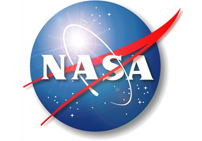NASA Request for Information (RFI) for combustionLAB and fluidsLAB Workshops

RFI Number: NNH14ZTT001L
Release Date: May 13, 2014
Responses Due Date: September 24, 2014
Background
NASA’s Space Life and Physical Sciences Division supports microgravity combustion science and fluid physics research conducted on the International Space Station (ISS). The orbital conditions on the ISS provide an environment where gravity-driven phenomena, such as buoyant convection, are nearly negligible.
Major gains in combustion science are achievable by extending the range of test conditions that can be investigated compared to Earth-based studies. These gains have the potential to significantly enhance practical combustion devices by increasing their efficiency, reducing pollutants and reducing their carbon footprint. Significant discoveries made to date by NASA’s microgravity combustion research program include uncovering the importance of sub-buoyant flows on flame spread, distinguishing between diffusive and radiative extinction of flames, discovery of new regimes of premixed and diffusive combustion, and obtaining new information on near limit diffusion flames. These findings have contributed to improved understanding of spacecraft fire safety and have provided previously unobtainable data for validating combustion and chemical kinetics models. The current ISS program includes studies of liquid fuel droplet combustion, gaseous diffusion flames, and flame spread over condensed phase fuels.
Similarly, gravity strongly affects fluid behavior by creating forces that drive motion, shape phase boundaries and compress gases. The need for a better understanding of fluid physics has created a vigorous, multidisciplinary research community whose ongoing vitality is marked by the continuous emergence of new fields in both basic and applied science. In particular, the low-gravity environment offers a unique opportunity for the study of fluid physics and transport phenomena. Experiments conducted in space have yielded rich results. Some were unexpected and most could not be observed in Earth-based labs. These results provided valuable insights into fundamental fluid behavior that apply to both terrestrial and space environments. As an example, recent capillary flow results have discovered both an unexpected sensitivity to symmetric geometries associated with fluid container shape, and identified key regime maps for design of corner or “wedge-shaped” passive gas/liquid phase separators. Results from research on fluid management and heat transfer, for both propulsion and life-support systems, have contributed greatly to U.S. leadership in space exploration.
Information Sought
The purpose of this RFI is to help NASA develop future research directions for the microgravity combustion science and fluid physics programs. Input to this RFI will be considered by NASA in developing recommendations for future ISS combustion and fluid physics research. NASA is planning to provide a forum for presentation and discussion of these recommendations at the American Society for Gravitational Space Research (ASGSR) conference to be held on October 23-26, 2014, in Pasadena, CA. These recommendations will form the basis for future ISS combustion and fluid physics experiment designs. Facilitating the future research directions is a new Physical Science (PS) Informatics System that will provide global access to all past, present and future ISS PS experimental data. This will promote an open source approach to scientific data analysis and become a gateway to hundreds of new ISS-based scientific investigations that will define the next generation of ISS experiments. The subsequent multiplication of investigators with data access will greatly enhance discovery and innovation.
You are invited to provide input to this RFI by describing a mission, observation, theory, or modeling activity that, making use of the ISS environment, promises to advance an existing or new scientific objective, contributes to fundamental understanding of combustion science and/or fluid physics, and facilitates the connection between science and societal needs. All responses will be considered non-proprietary public information for distribution with attribution.
NASA Primary Point of Contact (POC):
NASA Headquarters
E-mail: francis.p.chiaramonte@nasa.gov
Phone: 202-358-0693
The full RFI and submission instructions can be found at http://tinyurl.com/cfLAB-RFI.
To respond to this RFI, answers to a series of specific questions must be submitted electronically using the NASA Solicitation and Proposal Integrated Review and Evaluation System (NSPIRES) website by opening the NASA Research Opportunities homepage at http://nspires.nasaprs.com, then clicking the links through the menu listings “Solicitations” to “Open Solicitations” and selecting this RFI.
This is a Request for Information (RFI) only and does not constitute a commitment, implied or otherwise, that the National Aeronautics and Space Administration (NASA) will take procurement action in this matter. The information gathered will be considered by NASA to help develop future research directions for the microgravity combustion science and fluid physics programs.








